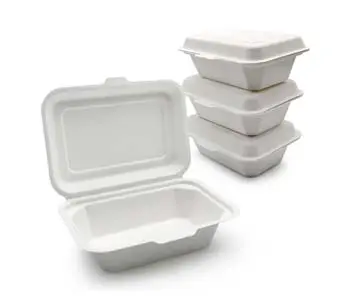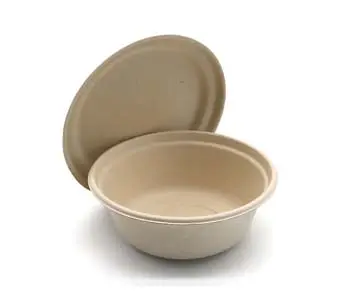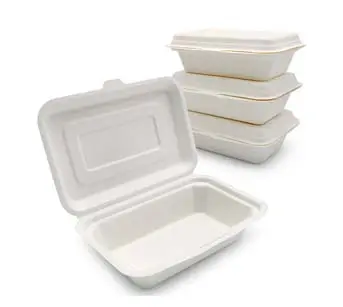In a world increasingly focused on sustainability and environmental responsibility, businesses are seeking eco-friendly packaging solutions that not only reduce their carbon footprint but also meet the growing demand from environmentally conscious consumers. One such solution gaining momentum is wholesale biodegradable containers. In this blog post, we'll delve into the world of biodegradable containers, exploring their benefits and why they're becoming a popular choice among businesses committed to going green.
Understanding Biodegradable Containers
Biodegradable containers are packaging materials that break down naturally into harmless substances when exposed to environmental conditions, such as moisture, heat, and microorganisms. These containers are typically made from renewable resources like cornstarch, sugarcane, or bamboo and are designed to reduce the environmental impact associated with traditional packaging materials, such as plastic.
The Environmental Impact of Traditional Packaging
Traditional packaging materials, particularly plastics, have come under scrutiny due to their long-lasting and non-biodegradable nature. Plastic waste poses a significant threat to ecosystems, wildlife, and the overall health of our planet. It's estimated that a single plastic bottle can take up to 450 years to decompose, and even then, it breaks down into microplastics that can persist in the environment for much longer.
Benefits of Wholesale Biodegradable Containers
Reduced Environmental Impact
Wholesale biodegradable containers offer a sustainable alternative to conventional packaging materials. They decompose naturally, minimizing the accumulation of non-biodegradable waste in landfills and oceans.
Renewable Resources
Many biodegradable containers are made from renewable resources, which means they can be replenished, reducing the reliance on fossil fuels and finite resources.
Lower Carbon Footprint
The production of biodegradable containers typically generates fewer greenhouse gas emissions compared to traditional plastic manufacturing processes, contributing to a lower carbon footprint.
Meeting Consumer Demand
Eco-conscious consumers are increasingly seeking products packaged in environmentally friendly materials. Offering biodegradable packaging can attract and retain environmentally aware customers.
Compliance with Regulations
Some regions have implemented regulations and restrictions on single-use plastics. Biodegradable containers can help businesses comply with these regulations while demonstrating their commitment to sustainability.
Applications of Wholesale Biodegradable Containers
Biodegradable containers are versatile and can be used in various industries and applications, including:
Food Service: Biodegradable food containers, cutlery, and straws are becoming popular choices for restaurants and cafes.
Retail: Biodegradable bags, packaging, and product containers are used in retail stores.
Agriculture: Biodegradable planting pots and trays are eco-friendly options for the agricultural sector.
Shipping: Biodegradable packing materials reduce waste in the logistics and e-commerce industries.
Making the Transition
Transitioning to wholesale biodegradable containers is a significant step toward reducing your business's environmental impact. However, it's essential to conduct thorough research to find the right biodegradable materials and biodegradable tableware suppliers that align with your sustainability goals.
In conclusion, as consumer awareness of environmental issues continues to grow, businesses are increasingly recognizing the importance of eco-friendly packaging solutions. Wholesale biodegradable containers offer a practical and sustainable alternative to traditional packaging materials, benefiting both the planet and your brand's reputation. By making the switch to biodegradable packaging, you can contribute to a greener future while meeting the demands of environmentally conscious consumers.




